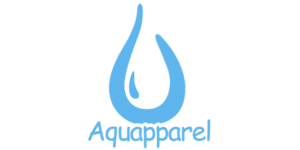When we cultured Phytoplankton in our aquaculture facility, we literally had 0 knowledge when we started of how to grow, harvest or even feed it to our zooplankton. As I have mentioned before, there is a ton of information out there that you can get for free. However, a lot of that information is incomplete and did not explain everything fully. Now what do I mean by that?
Well, if you are thinking about culturing your own Phytoplankton for your reef tank, zooplankton or breeding projects you need to know a few vital things or you will not be successful. And I can’t stress enough that you can unknowingly culture a bad bacteria that can wipe out your entire reef. On the breeding front, your fry will not develop properly, if at all if the proper precautions are not taken.
If you want all of the information on how we successfully grew our phytoplankton, you can purchase the full online course for $19.
In the meantime here are 5 essentials that you need to know about culturing Phytoplankton:

https://aquapparel.teachable.com/p/live-food
- Plastic bottles are not a good culturing vessel. They contain too many harmful chemicals to count and when you add a T1 light bulb or even sunlight in order to help your Phytoplankton grow, you are basically inducing a process called Photodegradation. This process occurs when plastic or – any waste – is broken down by sunlight. In chemistry when you add cold or heat to a single or multiple chemical element you can change it. The same goes for plastic or any other element – altered or not – on this planet. So, when you add the light to the Phytoplankton – which it needs in order to grow – you are accidentally inducing photogerdaton to your culturing vessels. You can use vessels like these since they do not contain BPAs or any other harmful chemicals. But, you want to be careful and ensure that the light is not breaking them down over time. This was a tricky factor for us but once we noticed any sign of the vessel breaking down, we disposed of it. So, in our course we recommend that you use glass culture vessels as the light has no effect on it. They do make glass carboys like the BPA free ones that we used. So if you need to scale to a larger vessel, then I recommend looking into these. Just be really careful when handling them as they are pretty heavy.
- Keeping a daily grow out log is essential to your success. This is called a secchi meter. It is literally a plastic ruler with a black O on the bottom of it. This is what we used on a daily basis in order to read the density of our Phytoplankton cultures. The density of culture will tell you what phase of growth that it is in. This is essential for determining a number of factors including: if it is growing at an acceptable rate, if it is ready to split, ready to harvest or if it is crashing. I’m sure that there are other devices out there but for a hobbyist or someone who is just starting out, this thing is an essential tool for culturing Phytoplankton from my experience.
- Just like our meals that contain different types of nutrients, each species of Phytoplankton contains essential nutrients and vitamins. Finding the right combination for the corals, filter feeders, zooplankton, etc. that will consume it is vital. Do you research and ensure that your Phytoplankton blend is partially complete for what you are feeding it to.
- Lab grade ethanol mixed with water is your new best friend. In order to prevent a culture crash or zooplankton contamination, this stuff is essential. Also, it evaporates pretty quickly but before you use any equipment, the smell of the ethanol needs to be undetected, otherwise, it is still on the equipment and will not allow for any type of growth to occur involving that equipment.
- You should not eat this stuff intentionally or on accident. Look, it happens, but you need to try your best to avoid it. I lost my voice for 2 weeks after accidentally ingesting some Nanochloprsis. Not a good time. So I know that the larger vessels can be heavy, just avoid mouth siphoning when transferring this stuff.
It’s really important to my overall goal for Aquapparel to make the most positive impact as I possibly can by sharing as much helpful information as I possibly can. I have a degree in Marketing, not biology. So if I can figure this stuff out, anyone with a passion or desire to make a positive impact either through aquaculture or bio fuel can do it too. That’s why I am creating a bunch of content about this stuff and that’s why we created the online course.
And there you have it! Once you take the course, you are given a link to a Facebook Group where you can get support from myself as well as other growers. So if you are seriously considering culturing Phytoplankton for any application, consider checking out our online course.

